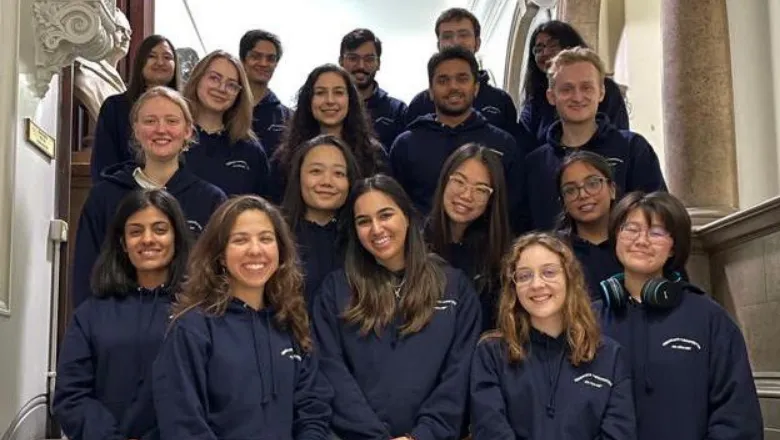This is another successful year for our iGEM team. They have overcome pandemic restrictions and produced an innovative project to address a very important medical problem of spinal cord injury.
Dr Anatoliy Markiv, Senior Lecturer in Digital Education.
24 November 2021
King's students win Gold in the iGEM 2021 Competition
The group, which included students from across three faculties, won the medal with a polycaprolactone-based scaffolding designed to support the treatment of spinal cord injuries.

International Genetically Engineered Medicine (iGEM) is the pioneering organisation of synthetic biology that acts as a launchpad for the industry’s most successful leaders and companies. Each year the foundation holds the Annual International Student Competition, the largest Synthetic Biology innovation event in the world.
Thousands of students take part every year, exploring the unique applications of synthetic biology and building solutions that can offer positive contributions to their communities. Since 2003, more than 50,000 people have participated in iGEM.
This year, our King’s College London group won a gold medal and ‘The Best Presentation’ project award, beating more than 300 teams from universities across the world to the Best Presentation award. They were also nominated for awards in 5 other categories: Best Undergraduate Therapeutics Project, Best Integrated Human Practices, Best Education, Best Entrepreneurship, and Best Wiki.
This incredible achievement was led by Alya Masoud Abdelhafid, a Year 3 Nutrition student, and Luke Bateman a Year 3 Biochemistry student. The team included students from the Faculty of Life Sciences & Medicine, the Faculty of Natural, Mathematical & Engineering Sciences and the Institute of Psychiatry, Psychology & Neuroscience.
Their award-winning project, ‘Renervate Therapeutics’ is focused on improving treatment for spinal cord injury. The team designed and modelled a 3D-bioprinted polycaprolactone-based scaffolding which contains a novel mussel-foot protein-based bio adhesive coating, formation of the bio-scaffolding material and the protein polymer.
The aim of this project was to outline a more holistic and less invasive treatment that reduces the need for surgical intervention.
The students were supervised by Dr Anatoliy Markiv and Prof Alison Snape.
Dr Anatoliy Markiv added: “The key to their success is teamwork and perseverance: they have worked incredibly well together and received support from colleagues across the Health Faculties, all of whom we thank. We hope this success can encourage new students to take part in iGEM and contribute to advance research in Synthetic Biology!”
